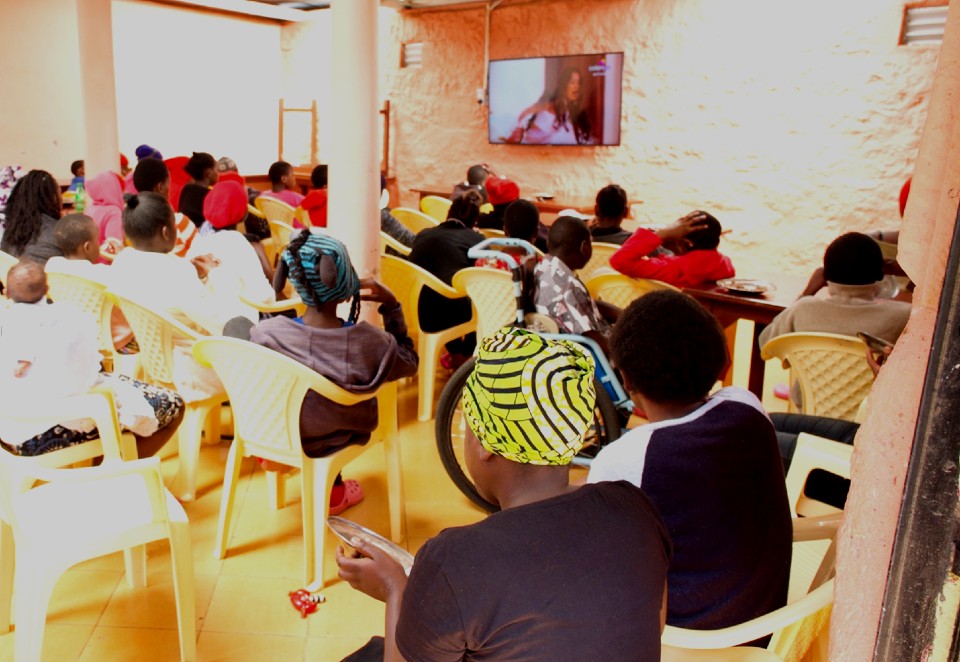Providing love in Kenya’s gender-based violence shelters
Date:

Faith* told her mother that her stepfather had molested her when she was twelve years old. Her mother did not believe her, so he continued to molest her. When she became pregnant, her mother abandoned her and she was forced to marry her stepfather.
“She left me with this man,” said Faith. “So, when I gave birth, I had no one on my side. I was a wife to my stepfather and a mother at 13 years old.”
One year later, she became pregnant again. “I dropped out of school to care for my family. My husband was not providing for us, so the burden was on me.” A friend advised Faith to go to the police for help, and she was referred to a shelter. “I have been living at this shelter for the last year. It is difficult being a mother of two at 15 ,” she says.
Living in a society where no one is your mother or sister
“When we receive a woman or girl at the shelter, our first step is to identify her immediate needs. Often, the first need is love, as they have come from a place where they have been rejected, hurt and hated,” says Teresa Watetu, a shelter manager in one of Nairobi’s safe spaces. The shelter runs a programme where new arrivals are paired with a ‘mother’ or ‘sister’ companion from the wider family of survivors who have been at the shelter longer.”
Faith has been able to go back to school and has childcare while she studies. “I have learned that I am important, and I still have a future. I have friends here, and with a lot of counselling I now feel seen and loved.”
While a shelter is supposed to be a temporary place of refuge, integrating survivors back into the community remains a challenge. “We have some women and girls who have been here for more than five years now. They go to school and come back here, because the society rejects them, or they simply have nowhere to go back home to,” says Teresa.
Faith’s mother is in jail for child neglect and her stepfather is also in jail for defilement. “I cannot go back home, because I have no home,” she says.
Rising cases of gender-based violence
According to a research commissioned by the President of Kenya in 2020, cases of gender based violence including rape, child marriage and femicide rose 36% in 2020 from 2019.
“It is true that numbers spiked during the COVID-19 pandemic as the shelter is completely full. We have many cases ranging from child neglect, defilement, gender-based violence and trafficking,” Teresa explains.
With the curfews and social distancing restrictions imposed due to the COVID-19 pandemic, a countless number of survivors of gender-based violence; particularly women and girls, found themselves trapped in violent homes.
Accelerating change
During the Generation Equality Forum in Kenya and Paris, Kenya’s President Uhuru Kenyatta announced a series of commitments to accelerate national efforts to end gender-based violence and female genital mutilation. They include integrating services for survivors of violence into the country’s Universal Health Coverage Package by 2022, and the establishment of GBV recovery and shelters in all Kenya’s 47 counties by 2026.
“To support the government commitments, we will ensure accountable and prudent use of the finances towards GBV prevention and response. We will continue to mobilize women movements and key allies to ensure a shift and full implementation of policies and laws at the national and county levels and also provide support to the government to ensure GBV interventions are data driven” said Wangechi Wachira, Executive Director of the Centre for Rights Education and Awareness (CREAW).
With support from the Government of Japan, UN Women has been working with Centre for Rights Education and Awareness (CREAW) to provide access to shelters and safe houses in Kenya. The project has supported four shelters in Nairobi and one in Mombasa. 479 GBV survivors accessed safe spaces and shelters while 388 individuals received psychosocial support during the 2020 COVID-19 period.
*Name has been changed to protect the identity of the survivor.